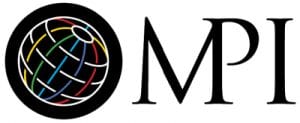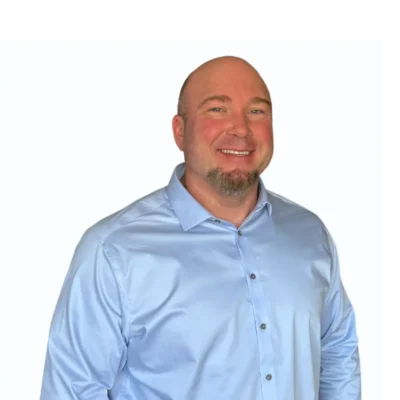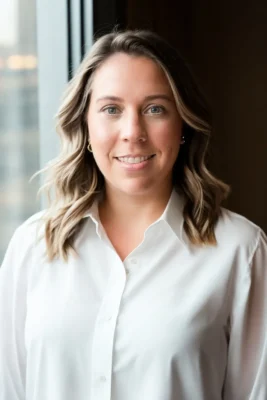After Convention Industry Council (CIC) started its Certified Meeting Professional (CMP) program in 1985, Meeting Professionals International (MPI) embraced this effort to professionalize the meetings industry. Grown to become a much sought-after designation by more than meeting planners, the CMP continues to be backed by MPI as well as more than 30 other CIC partner associations.
 “The CMP was something that was supported at its birth. We talked about making meetings professional because the thought process used to be that we’re a bunch of wedding planners,” explained Michael Dominguez, CHSE, senior vice president of sales, MGM Resorts International and chairman, international board of directors, MPI. “It was putting a certification behind an industry that really didn’t have a profession. It’s hard to be recognized as a profession without some type of certification.”
“The CMP was something that was supported at its birth. We talked about making meetings professional because the thought process used to be that we’re a bunch of wedding planners,” explained Michael Dominguez, CHSE, senior vice president of sales, MGM Resorts International and chairman, international board of directors, MPI. “It was putting a certification behind an industry that really didn’t have a profession. It’s hard to be recognized as a profession without some type of certification.”
Because the meetings industry was focused on professional development and growth, the association changed its name from Meeting Planners International to Meeting Professionals International and began providing resources to help professionals gain their CMP. Its annual World Education Congress (WEC), last held in Las Vegas from July 19-23, offers sessions that all count toward the CMP program.
“While at WEC, you can get half of your certification done. If you sequence your classes, you can get 10 and half hours of clock time with the Web sessions that are laid out,” explained Paul Van Deventer, president and CEO, MPI.
Recognizing individuals who have achieved the meeting industry’s highest standard of professionalism, the CMP certification program consists of meeting professionals demonstrating their experience and education in this field and passing a rigorous exam, which is scored pass/fail.
“What the certification is telling you is that you’re certified for the basics to be classified as a professional in the industry. If you lower that, it forgoes the whole certification process, so that is why it’s pass or fail. How many times have you had a lawyer who has failed the bar three times? I’m not hiring that lawyer or I’m in trouble,” explained Dominguez. “I have many of my employees take it. There is always pressure, but it makes them study and makes them go to their peer study groups. It’s a year-long process. They go to peer study groups, and they’re learning together. If it wasn’t a pass or fail test, I don’t think they’d be committing that much.”
MPI offers CMP study groups to help meeting professionals learn from their peers and have a better chance of passing the exam.
“Encouraging people to work in study groups allows them to be more successful. It’s like having an exercise partner. When you have someone to run with, you’re more likely to run on the days you don’t want to,” said Deventer. “If it’s just yourself going at it, it’s easy to say ‘it’s raining out’. A study group holds you accountable.”
Tara Letort, director of group PR for the New Orleans Convention and Visitors Bureau, took advantage of the study groups offered through the MPI Gulf States Chapter to earn her CMP.
“It consisted of me going every Wednesday for 10 weeks leading up to the exam. Professionals who had their CMP came in to teach the CIC manual and gave tips,” explained Letort. “I think that helped me understand the wording of questions. It was a great team effort. I think everyone passed for the quarter.”
Committed to passing the test no matter what, Letort said gaining her CMP allowed her to become more efficient at her job.
“It allows me to think like a meeting planner, understand their challenges and demands on times. I can create better strategies to help them be successful,” she said.
To some, it may seem unusual that a person involved in public relations would want to obtain their CMP, but nowadays, MPI study groups consist of more than meeting planners. Conference managers along with sales and public relations people are increasingly working toward the CMP. According to Letort, many of the employees at her CVB have obtained the designation.
“From the sales side, it’s important for us to know what is being taught to our planners. It helps us work with them. We make sure we’re equipped to handle what they’re going to be asking. So there is a push for that,” explained Dominguez. “For MGM as a whole, we focus on our conference servicing people – making sure they’re getting their CMPs because they’re the ones planning meetings with the meeting planners. It would be important for them to know what the planner is thinking and envisioning what they’re trying to execute.”
It also pays to get the CMP, according to a June Professional Convention Management Association (PCMA) salary survey. A resource for leaders in the meetings, conventions, events and tradeshow industries, PCMA reported that the average salary for meeting professionals who earned their CMP designation is $14,308 more than for those without the designation.
A membership organization for corporate, association and independent meeting planners, Meeting Professionals International also offers study kits, distribution channels and OnDemand content via its website for professionals seeking to earn the CMP. Convention Industry Council, the manager of the CMP program and facilitator of meetings information, partnered with MPI to ensure the classes MPI offers at World Education Congress count toward its program.
MPI’s WEC 2014 is scheduled for Aug. 2 – 5 in Minneapolis, Minn. The Congress brings together meeting professionals, suppliers to the meetings and business events industry, and students and faculty.






























